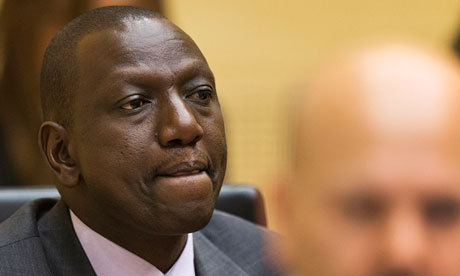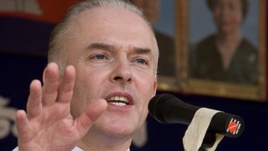By Erica Smith
Impunity Watch Reporter, Africa
BANGUI, Central African Republic — As the humanitarian crisis in the Central African Republic (CAR) continues to escalate, President Michel Djotodia announced the dissolution of the Seleka Coalition. The rebel groups in the same group that brought Mr. Djotodia to power in March.

“The Seleka coalition is dissolved over the length and breadth of the ’s territory. Only the Central African security force is in charge of protecting our territorial integrity. Any individual or group of individuals who act in the name of Seleka … after the publication of the present decree … will expose themselves to the full sanctions under the law.”” the statement broadcast Friday afternoon said.
The rebel group has increasingly turned towards violence and looting and it is unclear if Mr. Djotodia’s announcement will do much to curb the violence. It is also unclear if Mr. Djotdia will face any consequences for disbanding the group.
The chief of the Mandaba neighborhood of Bangui told the AP that the move was political. “The measure taken by President Michel Djotodia will change nothing in terms of the behavior of the militia known as Seleka. President Djotodia is trying to create distance and confusion over the acts of abuse committed by their fighters. This is a measure that was taken for the sake of appearance.”
To help maintain security in CAR a regional peacekeeping force that was assembled will receive a boost from the Republic of Congo and the United Nations. The Republic of Congo already has 150 soldiers in the area and sent 200 more on Sunday. There are about 2,000 peacekeepers already in the region as part of the Multinational Force of Central Africa (FOMAC). With the addition on U.N peacekeeping troops the number is expected to grow to more than 3,500.
“We need a big force to come here because we are suffering a lot under Seleka,” George Fakida who owns knife workshop in Bangui told the Voice of America.
For further information, please see:
ABC News — More Peacekeepers Head to Central African Republic — 15 September 2013
Voice of America — African-Led Peacekeeping Force Due for Boost in CAR — 14 September 2013
New York Times — Central African Republic: Leader Turns Against Rebels Who Put Him in Power — 13 September 2013
Washington Post — President of Central African Republic dissolves rebel group that brought him to power — 13 September 2013



